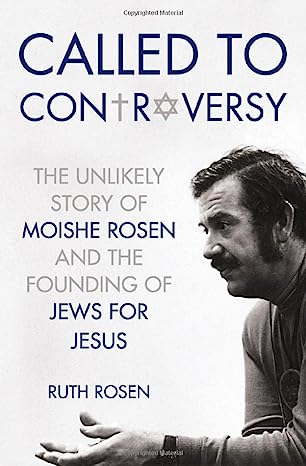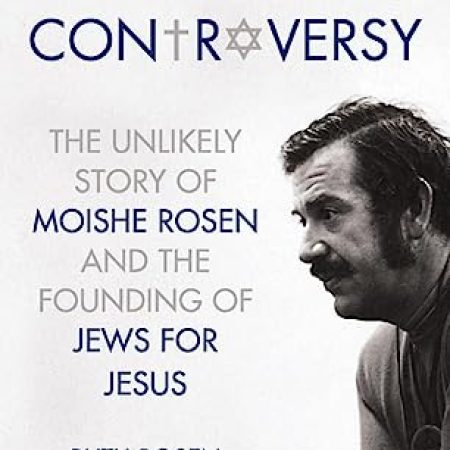
I have known the names of Moishe Rosen and Jews for Jesus for many years but have to admit that I knew next to nothing about the man or his ministry, so was glad to get a complimentary copy of this biography, written by his daughter Ruth, for review.
Biographies written by a close relative do not always work but this one does, as Ruth Rosen manages to avoid a sentimental perspective on her father’s life and work and achieves a creditable amount of objectivity. Rosen was a converted Jew who worked for many years with the American Board of Missions to the Jews (ABMJ) before branching out to spearhead his own ministry which has become an international missions force.
For some reason I am especially drawn to biographies of bold, risk-taking, visionary Christian leaders and Rosen certainly fits into that category. Like others of that ilk, those very qualities don’t always make them easy to work with or for, and Rosen was no exception. His daughter traces his reluctant progress as he goes for theological training and then joins the staff of ABMJ, taking on more and more responsibility and leadership and discovering his strengths and weaknesses. There are several leadership lessons that could be learned from Rosen’s life:
He was a man of great passion; first and foremost for God, and then for his fellow-Jews who were blind to the truth about the Messiah. There is, in my opinion, a shortage of passionate leadership around in Christian circles today. Too many managers and not enough leaders. Too many ‘leading from behind’ or taking the temperature of opinion before launching out in obedience to God’s call on their lives.
He was a man of deep commitment to the Scriptures. This, of course, the foundation of all true Christian leadership – an unwavering commitment to the authority and truth of God’s Word and its continued power to transform and shape lives. Rosen believed in the power of the preached Word.
A man of integrity. Early on in his working life he was exposed to some less than scrupulously honest practices and vowed never to follow those examples.
A man of humility. Rosen was not unwilling to admit, sometimes publicly, that he had got something wrong and made mistakes. He was aware of the dangerous impact that speaking to large crowds had on him and sought to avoid them in the future for his own spiritual good.
A man with a big heart. Rosen was not territorial. He wanted to work with other likeminded groups who shared his vision and burden for the Jewish people and wasn’t always protecting his own patch.
I have read better literary works, but my vision has been enlarged as a result of reading this volume, my heart warmed and my faith stirred. What more can I say. Read it for yourself.
For the purpose of review, I received a complimentary copy of the book from the Publishers. I was under no obligation to write a positive review.
Thomas Nelson (21 Feb. 2012) Review written in 2012
